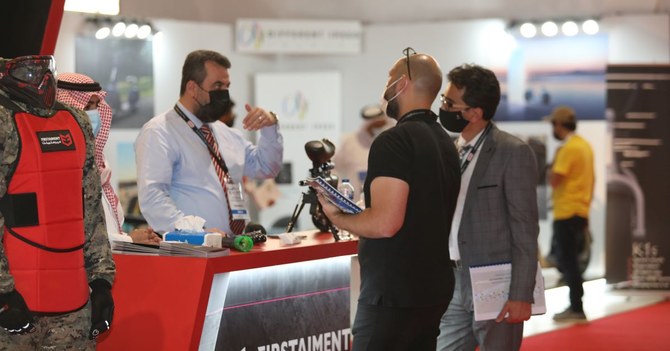RIYADH: Global leaders in the leisure industry will convene for the fourth Saudi Entertainment and Amusement Summit and Expo taking place next month at the Riyadh International Convention and Exhibition Center, a gathering expected to further boost the Kingdom’s burgeoning tourism sector.
The three-day event — from May 16 to May 18 — is one of the region’s largest and will have over 200 exhibitors from across the world showcasing the latest innovations in the sector.
The Kingdom is planning to invest $64 billion in its entertainment industry as part of Vision 2030, which is expected to ensure massive developmental changes in the country.
Organized by DMG Events, the SEA summit and expo brings together government bodies, venue and project owners, architects, consultants and developers involved in the giga-projects in the Kingdom, to meet the increasing demand for quality products and services.

Supported by the Federation of Saudi Chambers and having the National Entertainment Committee as the event’s strategic partner, the event is expected to support the Kingdom’s aim to become a global destination for tourists and travelers.
For this purpose, the summit organizers have curated the most relevant and compelling content platform to allow local and international participants form meaningful connections, hear about innovative solutions, and learn about upcoming trends.
The event “offers a great opportunity for all stakeholders in the industry to get involved with conversations surrounding the future of entertainment in the Kingdom. We are excited to see industry leaders and experts coming from all over the world to share insights and join efforts to make Saudi Arabia the first entertainment destination in the world,” said Alwaleed Albaltan, president of the NEC.
At the event, visitors will have access to keynote presentations, panels, case studies, interviews, and workshops presented by innovators, industry leaders, and experts.
“Working through the SEA summit and expo programs, we wanted to ensure our speakers and exhibitors reflect the change and demand in the Kingdom’s entertainment sector and offer a platform where buyers and suppliers learn about upcoming trends, discuss industry requirements and do business,” Sarkis Kahwajian, event director at DMG Events, told Arab news.




































